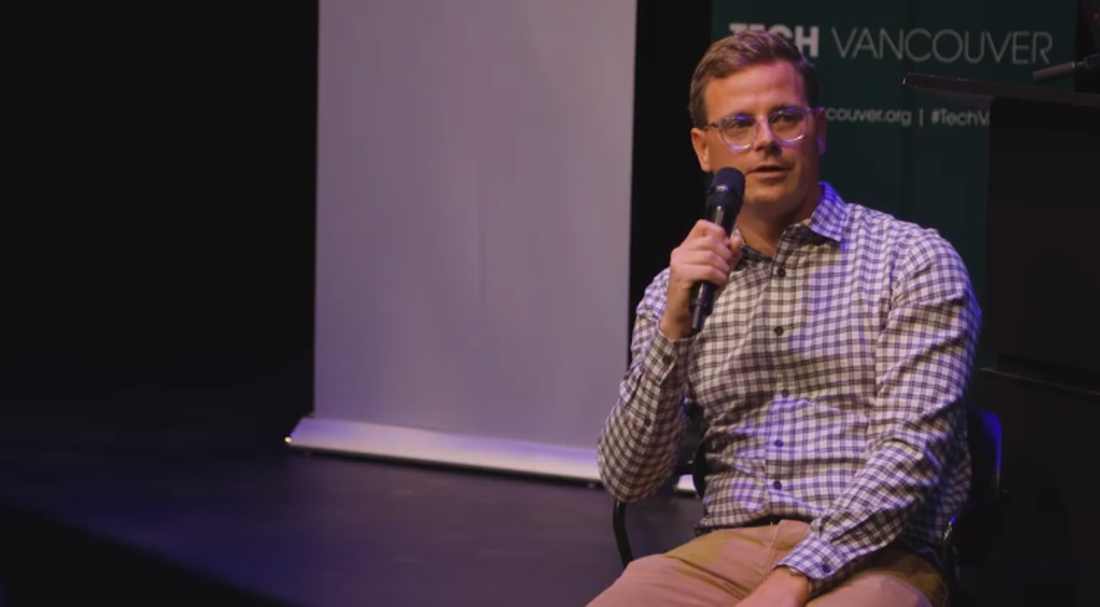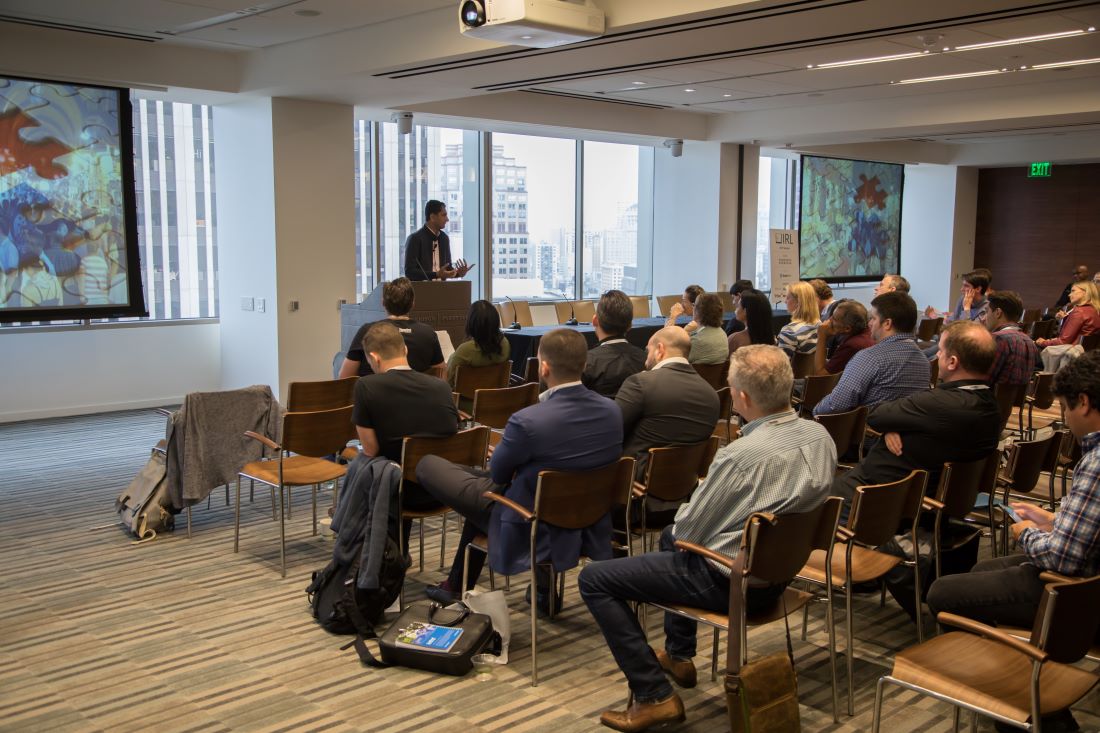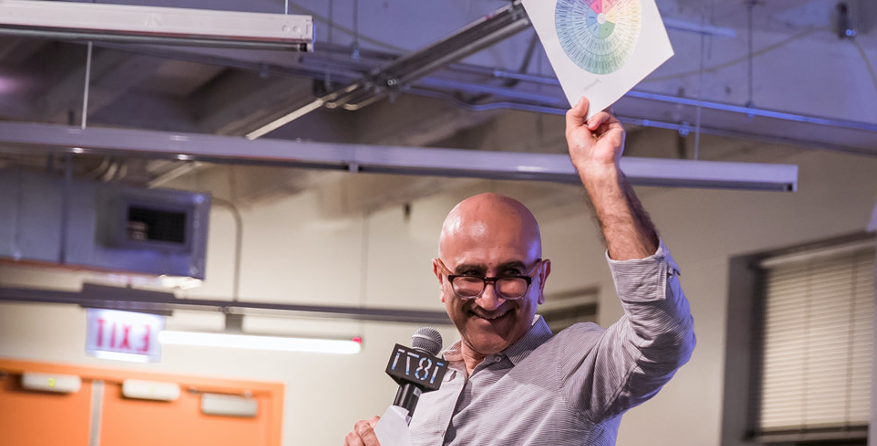
Whether you’re starting a company or moving a heavy object, lifting something the first inch is always the hardest part. Ben Hutchinson, founder of Rocketplace and Earnest, shares his methodology for launching a company, from choosing a cofounder to finding your niche as an early-stage startup.
Launching a startup is almost always a long-term proposition. But according to two-time founder Ben Hutchinson, the very first steps are the hardest part.
Hutchinson likens starting a company to moving a heavy box: “The first inch is the hardest part,” he says. “Then once you’ve got something in motion, you’re steering and influencing. The first inch is taking nothing and making something.”
Hutchinson speaks from personal experience, having co-founded the fintech leader Earnest a short few years after the financial crisis of 2008-2009. After launching Earnest in 2013, he grew it to over 200 team members, helped to refinance $1 billion worth student loans, and ultimately successfully exited to loan servicer Navient. More recently, he founded professional services platform Rocketplace in 2019.
“In the very first stages of launching a startup, there are several critical pieces that merit careful thought and consideration,” Hutchinson adds. Chief among them is choosing a co-pilot on what will likely be a long-haul journey.
Register to Ben’s full webinar and see if you qualify for membership to Founders Network and get Ben’s tried-and-true tips on:
- Choosing a Cofounder
- Idea Selection
- Seed Fundraising
- Making you First Hires
- Finding Product-Market Fit
“Company building is very hard, and it’s very hard emotionally,” Hutchinson says. “Secondly, the benefit a cofounder gives you is that continuous conversation about your business. No matter how smart your mum or your partner or your investor is, you can’t get them up to speed fast enough to have the conversation about the hard things. Having a sounding board in someone who has all of the context is incredibly valuable.”
While the co-founder relationship is naturally a very close one, it’s risky to go into business with a best friend or family member. Instead, Hutchinson recommends that for anyone starting a company, grab a piece of paper and “write down the names of the three smartest people you know, and then another list of your 11th to 20th best friends,” he adds. “If there isn’t a name that appears on both lists, then you probably don’t have a co-founder.”
And then, of course, there’s the idea itself. Thinking critically about your business concept — as well as turning your thoughts to the future — will help to ensure your idea is strong and sellable.
There are a number of criteria that founders should evaluate methodically: the scale of the idea, what makes it different, what lessons can be applied from past experience, among others. And contrary to the popular cliche that founders aspire to “change the world,” it’s also best to anticipate how the world is going to change — and tailor your idea to that expectation.
“It's really important to be incredibly passionate about your idea. But you also need to be passionate about how the world is going to change, and what opportunities will exist in that future state.” - @benmhutch Share on X“It’s really important to be incredibly passionate about your idea,” Hutchinson says. “But you also need to be passionate about how the world is going to change, and what opportunities will exist in that future state.”
Once you have a co-founder selected and an idea established, seed fundraising isn’t far off.
Experienced founders like Hutchinson emphasize the need to choose investors wisely. Rather than focusing on valuation or dilution, focus instead on alignment. All capital is not equal, and ensuring alignment on goals can help prevent problems in the future.
“Stakeholder alignment is what's most important. Early stage companies are very fragile, and any strain from misalignment is liable to create a fracture.” - @benmhutch Share on X“Stakeholder alignment is what’s most important. Early stage companies are very fragile, and any strain from misalignment is liable to create a fracture,” Hutchinson says. “At each stage, taking money from the appropriate investors for that stage is really important. You are going to be a team for a long time.”
“The same rationale applies to hiring. Oftentimes, an early stage company will function with a small and cohesive team for some period of time. But it’s never too early to start thinking carefully about culture, and ensuring a diversity of viewpoints as your team tests and learns. Those two attributes can help bad ideas from metastasizing,” Hutchinson adds.
“Hiring an early team isn’t about just replicating yourself ten times. It’s actually about ensuring you have a diversity of viewpoints that will allow you, as a group, to go through a hyper-learning phase,” he says.
“Once you've got a product out in the market, you have to take the signal that you're getting and work towards a place where the market is pulling the product out of your hands.” - @benmhutch Share on XThat’s essential groundwork for discovering product-market fit, which is a critical milestone for any early stage company. You’ll know you’ve reached it when “even though it’s broken, the market keeps wanting the product – you’ve solved a problem,” he adds.
“Once you’ve got a product out in the market, you have to take the signal that you’re getting and work towards a place where the market is pulling the product out of your hands,” says Hutchinson.






